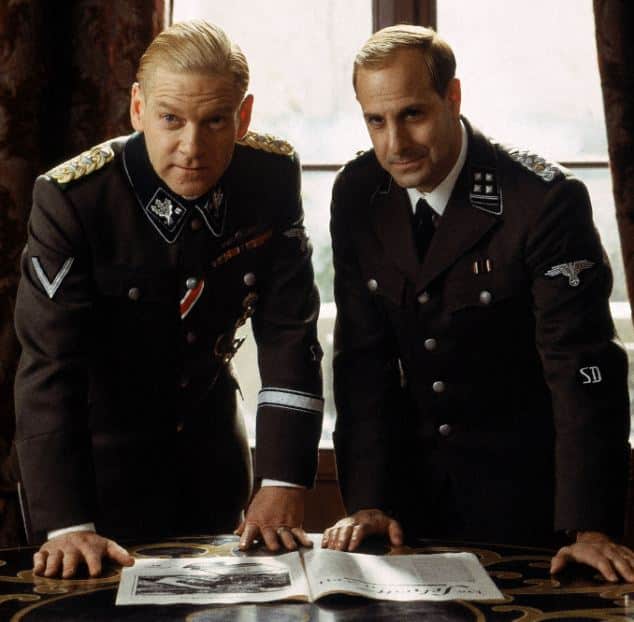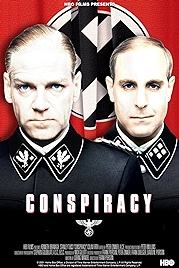A movie for every day of the year – a good one
20 January
The Wannsee Conference, 1942
On this day in 1942 a short meeting was held at 56-58 Am Großen Wannsee, in the suburbs of Berlin. It was called by Reinhard Heydrich, boss of the SS, and gathered together the heads of various government departments to facilitate the removal of Jews from Germany and occupied territories, their deportation to Poland and their extermination. It lasted only about 90 minutes and was arranged to put in place the practical measures to ensure that the process ran smoothly, and to make sure that the various government departments cooperated.
A secondary concern was to hammer out, once and for all, who was to be considered Jewish and who among the Jews was to be spared (those who simply could not be replaced, was the answer). It was in effect a power-grab by Heydrich, who arrived at the meeting with a sheet of paper on which were written the numbers of Jews estimated to be living in the various countries of Europe. The estimated number was “over 11 million”.
The idea was to ship all of them out to Siberia, where they would all work till they died, and those who didn’t die would be killed, on account of their tough constitutions being dangerous if passed on to future generations. Though the entire meeting was couched in euphemism – Jews were to be “evacuated”, survivors of severe work details were to be treated “accordingly” – everyone present knew what was actually being discussed, as testimony from Adolph Eichmann at his trial in Israel in 1962, attests.
Conspiracy (2001, dir: Frank Pierson)
Conspiracy tells the story of the Wannsee Conference, and it tells it largely from a record of the meeting found in Hitler’s Foreign Ministry after the war had ended, which also provided the raw material for the German-Austrian film Die Wannseekonferenz. Kenneth Branagh heads the largely British ensemble cast, playing Reinhard Heydrich, while Stanley Tucci plays Adolf Eichmann, the high-level penpusher who facilitated the transportation of Jews across Europe, made sure t’s were crossed, i’s were dotted and trains ran on time – the “desk murderer” as the Nazi-hunter Simon Wiesenthal later called him. Heydrich is pivotal, the cool sinister presence nudging, cajoling, urging the other factotums present into endorsing what they have been summoned to that room to endorse. Disagreements are few, and tend to be of a pedantic or legalistic nature – on the exact definition of what a Jew is, according to 1935s Nuremberg Laws, for instance, which Colin Firth’s Dr Wilhelm Stuckart gets hung up on – rather than the moral awfulness of what they were planning. Heydrich was in effect asking the room to drop the legal pretext for killing Jews and just get on with it. In Branagh’s Heydrich we have not a portrait of evil but of cold efficiency, “the man with the iron heart” as Hitler called him – Branagh later talked about wondering whether Heydrich, if asked to eliminate 11 million tennis players, might not have done it with similar ruthlessness. Beware the civil servants, the managers, in other words. Director Frank Pierson (who had written another largely single-room drama, Dog Day Afternoon, years before) keeps the camera at head level. We’re at the table with Heydrich as he moves the agenda from one item to the next, moving from the less controversial (“immigration”) to the more (“evacuation”) and focusing his frightening intensity on any backsliders he finds as each item is dealt with. We are at the table. It is mass extermination as high-level board meeting, murder as business.
Why Watch?
- An informative if chilling history lesson
- The great cast includes David Threlfall and Ian McNeice
- Fifteen men in a meeting has rarely been less boring
- The Second World War from an entirely revelatory angle
Conspiracy – at Amazon
I am an Amazon affiliate
© Steve Morrissey 2014

